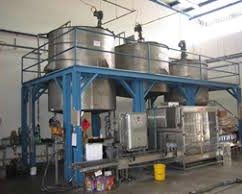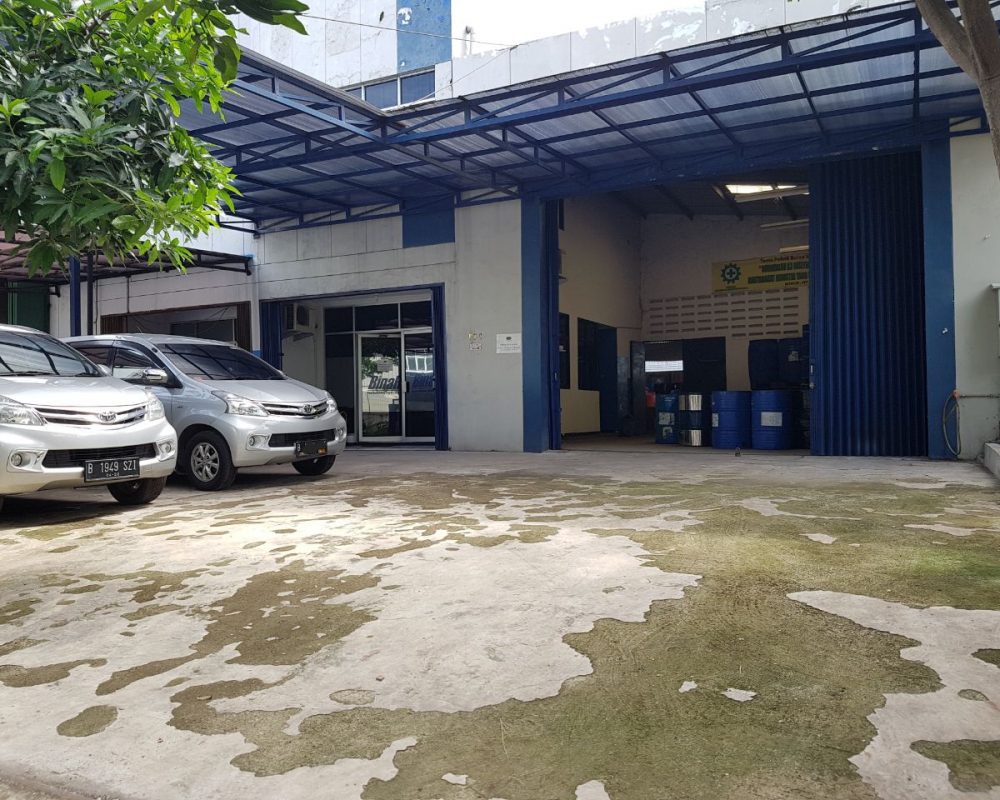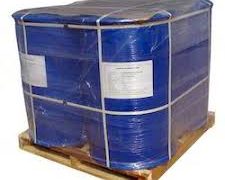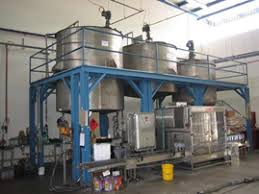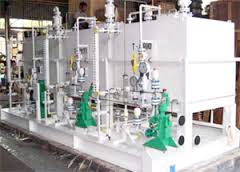 Oilfield scale inhibition is the process of preventing the formation of scale from blocking or hindering fluid flow through pipelines, valves, and pumps used in oil production and processing. Scale inhibitors are a class of specialty chemicals that are used to slow or prevent scaling in water systems. Oilfield scaling is the precipitation and accumulation of insoluble crystals (salts) from a mixture of incompatible aqueous phases in oil processing systems. ‘Scale’ is a common term in the oil industry used to describe solid deposits that grow over time, blocking and hindering fluid flow through pipelines, valves, pumps etc. with significant reduction in production rates and equipment damages. Scaling represents a major challenge for flow assurance in the oil and gas industry. Examples of oilfield scales are calcium carbonate, iron sulfides, barium sulfate and strontium sulfate. Scale inhibition encompasses the processes or techniques employed to treat scaling problems
Oilfield scale inhibition is the process of preventing the formation of scale from blocking or hindering fluid flow through pipelines, valves, and pumps used in oil production and processing. Scale inhibitors are a class of specialty chemicals that are used to slow or prevent scaling in water systems. Oilfield scaling is the precipitation and accumulation of insoluble crystals (salts) from a mixture of incompatible aqueous phases in oil processing systems. ‘Scale’ is a common term in the oil industry used to describe solid deposits that grow over time, blocking and hindering fluid flow through pipelines, valves, pumps etc. with significant reduction in production rates and equipment damages. Scaling represents a major challenge for flow assurance in the oil and gas industry. Examples of oilfield scales are calcium carbonate, iron sulfides, barium sulfate and strontium sulfate. Scale inhibition encompasses the processes or techniques employed to treat scaling problems
What does Scale Inhibitor mean?
This is a chemical or mechanical treatment injected or installed in fluid flow systems to prevent the precipitation and aggregation of slightly insoluble compound formation on the walls of the systems. It comprises a technology purposely designed to reduce the rate of scale formation to boost the oil, gas and water production industries. It aims at improving the heat transfer and the carrying capacity of the fluid distribution system.
The variation in the atmospheric conditions in gas and oil production wells has resulted in the precipitation of dissolved salts in the gas, oil and brine mixture. The formation of scales depends on the pressure, temperature and the chemical composition or properties of the mixture. Some of the common topside and downhole scaling deposit include:
- Calcium carbonate (Calcite)
- Barium sulfate (barite)
- Strontium sulfate (Celestine or celestite)
- Calcium sulfate dehydrate (Gypsum)
- Sodium chloride (Halite)
- Calcium fluorite
- Zinc sulfide
- Lead sulfide
- Magnesium carbonate
- Sodium carbonate
- Magnesium and sodium nitrates
- Silica
Scaling can be remedied by using mechanical methods like milling, drilling and jetting. In the case of inhibiting scale formation, chemicals and technologies are used; they are also used as alternatives when the mechanical means are expensive. The scale inhibitor works on the basis of the degree of scale supersaturation recorded.
The chemical dissolution involves the chelation of carbonate and sulfate scales using phosphorous and inorganic compounds. This chemical inhibitor solution is injected continuously into the matrix of the fluid by precipitation and adsorption squeeze treatments.
The scale inhibitor also helps in corrosion prevention since it improves the flow rate, thus not allowing certain corrosive materials to settle and adhere to the walls and the tubes. This addresses the problems encountered in heat transfer equipment like boilers, heat exchangers and heating systems. It reduces plugging of pipes, water handling equipment and well tubing, thus generating economical oil, gas and water production systems.


